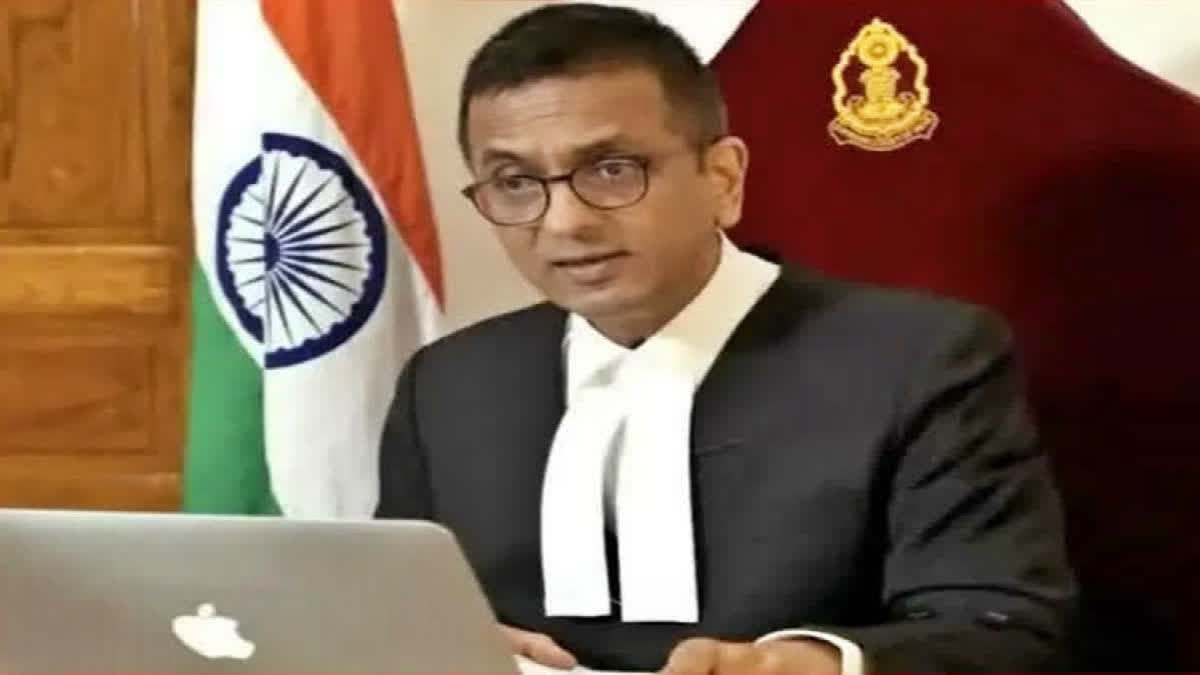New Delhi: The Chief Justice of India D Y Chandrachud on Tuesday said there is a plan to physically expand the Supreme Court by constructing a new building which will house 27 additional courtrooms, registrar courtrooms, and adequate facilities for lawyers and litigants.
"The new building will reflect constitutional aspirations and beliefs and priorities of the Indian people in addition to providing a space which facilitates access to justice," he said.
The Chief Justice was speaking at Supreme Court Bar Association (SCBA) Independence Day celebrations. The Chief Justice said that the plan to expand Supreme Court will be in two phases and a new building will have 27 additional courtrooms, four registrar courts, and adequate facilities for lawyers and litigants, while stressing on the need to overhaul judicial infrastructure on the priority basis to make the courts accessible and inclusive.
The Chief Justice said in the first phase the museum and the annex building will be demolished to construct a new building providing 15 courtrooms, library for SCBA and Supreme Court Advocates-on-Record Association (SCAORA), offices for the officials of these Bar bodies, canteen for lawyers and litigants along with women bar rooms.
The Chief Justice said the proposal has been submitted to the central government, the Department of Justice, and a detailed plan report has also been drawn up, which has also been submitted. He said in the next phase some of the existing part of the court complex will be demolished for the construction of the second part of the new building will accommodate 12 courtrooms and registrar courts, a lounge for SCBA and SCAORA.
“The new building will reflect constitutional aspirations and beliefs and priorities of the Indian people in addition to providing a space which facilitates access to justice….technology is the best tool at our disposal to eliminate the inefficiency and opacity surrounding the judicial process”, said the Chief Justice. He added, “we are implementing the phase 3 of the e-courts project, which has received budgetary sanction for Rs 7,000 crore….it seeks to revolutionise by interlinking all courts throughout the country, setting up infrastructure of paperless courts, digitization of court records, setting up of advanced e-seva kendras….”.
The Chief Justice, in the presence of the Law Minister Arjun Ram Meghwal, also made a reference to arbitrary arrests and threatened demolitions, and, without pointing at any case, stressed that irrespective of the outcome of a case, the strength of the system is granting access to justice. Earlier, in the day Prime Minister Narendra Modi praised the judiciary's efforts to translate its key judgments into regional languages.
The Chief Justice said that every complaint, each letter, and even addressed to social media websites instead of him, is dealt with by him. “But I request lawyers, if you have any grievances do not run outside the court, you have the head of the family sitting here….”, he said. He said that a sense of confidence in an individual if their properties are attached unlawfully, must find solace and a voice in judges of the apex court .
He said, “I believe the challenge of the judiciary is to eliminate the barriers of access to justice and have a roadmap in place to ensure the judiciary is accessible and inclusive…..”. "After 76 years, our tricolour flutters in the winds of liberty and equality. There are times when the wind has stood still and there have been storms on the horizon….. it (the flag) serves as a symbol of our collective heritage and guides us towards our future aspirations," he said.
The CJI said institutions such as the media, bureaucracy, political parties, and voluntary organisations also have an important role in bringing about a fundamental change in the culture of our society.



